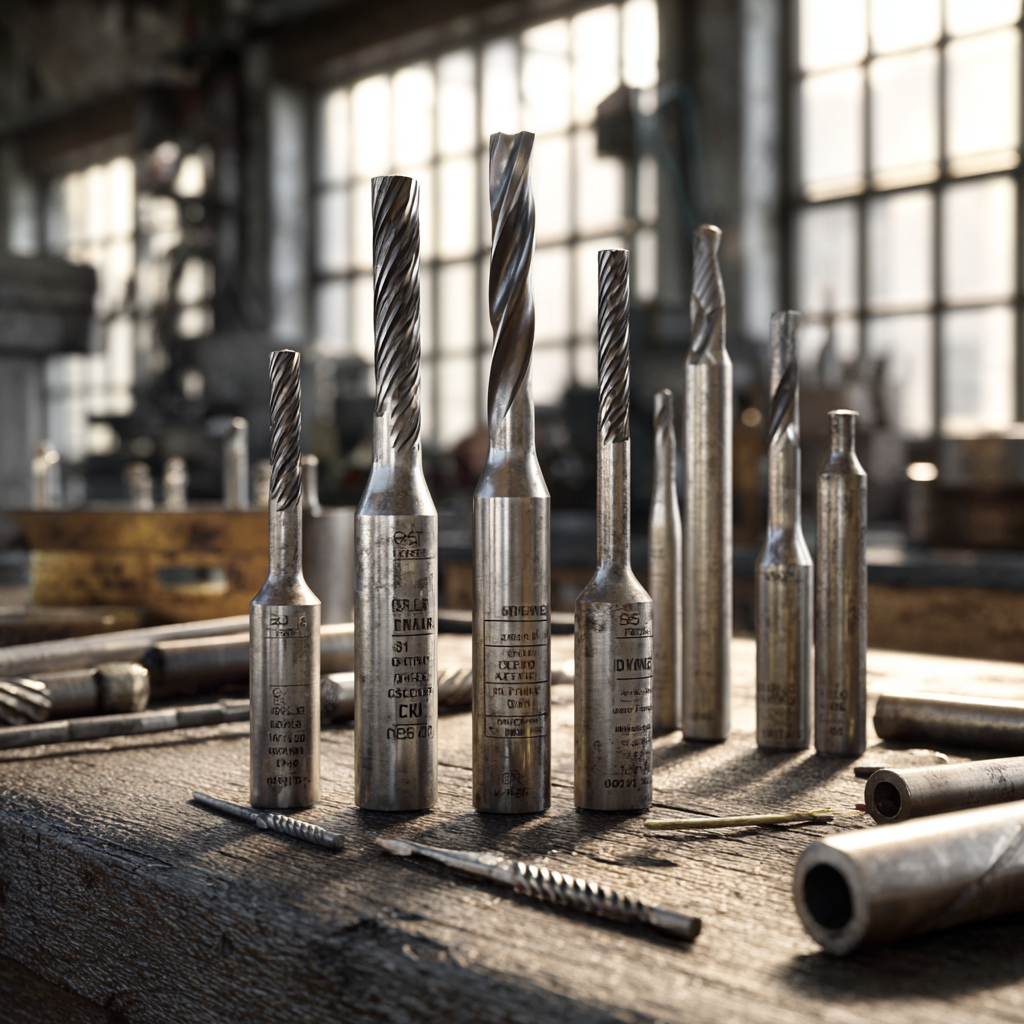

When it comes to machining steel, one of the most common tasks is creating precise holes. From simple fasteners to complex machine assemblies, holes must be accurate, smooth, and reliable. This is where drills and reamers — guided by DIN standards — play a central role.
3.1 Taper Reamers (DIN 9, DIN 204)
-
DIN 9: Defines taper reamers for small pins with a gentle 1:50 taper. These are used to lock components like levers and gears to shafts with extreme accuracy.
-
DIN 204 (Morse Taper Reamers): These reamers create a more pronounced, self-locking taper. This is the universal standard for tool holding in drill presses and lathes.
💡 Analogy: A cork in a wine bottle. A taper reamer creates a perfectly shaped “cork hole,” and the matching pin or tool wedges securely in place.
3.2 Hand and Machine Reamers (DIN 206, 208, 212)
-
DIN 206 (Hand Reamers): Have a square end to be turned by hand.
-
DIN 208 (Machine Reamers with Morse Taper): Fit directly into machine spindles.
-
DIN 212 (Straight Shank Machine Reamers): For clamping in collets or chucks.
💡 Analogy: Drilling is like using a coarse saw, while reaming is like finishing with fine sandpaper. The drill creates the hole, and the reamer perfects it to the exact size and smoothness.
3.3 Special Reamers (DIN 209, 210, 211, 219, 859)
-
Shell Reamers (DIN 209, 219): Hollow reamers mounted on an arbor. Economical because only the worn “shell” is replaced.
-
Adjustable Reamers (DIN 210, 211, 859): Expandable designs that can be tuned as they wear, extending tool life.
💡 Analogy: A refillable pen. Instead of throwing the whole pen away, you just replace the ink cartridge (the cutting edge).
Why Drills and Reamers Matter
✔️ Drills create the hole, reamers perfect it
✔️ Ensure tight fits for bolts, bearings, and pins
✔️ Provide smooth finishes that reduce wear and stress
✔️ Save costs with replaceable and adjustable designs
In mining, automotive, and heavy industry, these tools ensure every connection is strong, precise, and safe.
From creating basic holes to fine-tuning them with exact tolerances, drills and reamers are the workhorses of precision metalworking. DIN standards guarantee that these tools deliver consistent, high-quality results in every workshop around the world.

